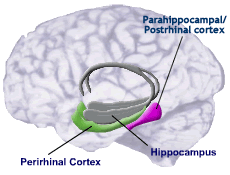Over half of the world?s population lives in urban areas. In the United States alone, 80.7% of Americans live in cities. Dr Jacob Kumaresan, director of the World Health Organization?s Centre for Health Development, warns that this is creating many new problems. ?The world is rapidly urbanizing with significant changes in our living standards, lifestyles, social behaviour and health,? says Kumaresan. ?While urban living continues to offer many opportunities, including potential access to better health care, today?s urban environments can concentrate health risks and introduce new hazards?. Many people have discussed the health implications associated with pollution and the risk of crime. However, there are other health risks that receive far less attention. One of those issues is the impact of noise. Exposure to noise can cause significant health problems. Here are some of the risks.
Disrupting Circadian Rhythms
People that are exposed to noise in the evening face a high risk of developing sleep problems. A meta-analysis of three years of studies from a team of researchers from Manchester Metropolitan University found the risks are pretty significant. ?New epidemiological studies support already existing evidence that night-time noise is likely associated with cardiovascular disease and stroke in the elderly. These studies collectively also suggest that nocturnal noise exposure may be more relevant for the genesis of cardiovascular disease than daytime noise exposure. Relative to noise policy, new effect-oriented noise protection concepts, and rating methods based on limiting awakening reactions were introduced. The publications of WHO’s ”Night Noise Guidelines for Europe” and ”Burden of Disease from Environmental Noise” both stress the importance of nocturnal noise exposure for health and well-being.? The authors point out that there need to be more studies on the causal relationship, but existing knowledge about noise and circadian rhythms show a pretty clear link. Sleep impedes circadian rhythms, thereby reducing quality of sleep.
Hearing Loss
Chronic exposure to loud noise can drastically increase your risk of developing hearing problems. These risks tend to be highest for people working in factories and other areas with high levels of noise pollution, but they can also affect people living in the city. According to a recent story published in Medical Daily, the risk of developing hearing loss is nearly twice as high for people living in urban areas. ?City life is taking a toll on your hearing, according to a recent study published in The Lancet. People who live in noisy cities have an increased risk of hearing loss by 64 percent, reports MedicalXpress. Many of these ear-damaging environmental noises go unnoticed as a part of our daily lives.?
Higher Cortisol Leads to Higher Risk of Heart Disease
Heart disease is a major problem that causes approximately 25% of all deaths in the United States. There are numerous factors that lead to heart disease. Poor diet, lack of exercise and the stress of working long hours are among the leading causes. However, some factors are more overlooked. The correlation between noise and heart disease is profound. According to one study, reducing noise pollution levels by 5 decibels would reduce heart disease risks enough to save the country $3.9 billion a year.
Reducing the Risks of Noise Pollution
Understanding the health implications of noise pollution is important. However, finding effective solutions is even more so. Here are some ways people can reduce the risks of noise pollution. Invest in Soundproofed Walls Soundproofing your walls is a good way to keep out excessive noise. This is particularly important for your bedroom if you live on a busy street. If you work from home, it?s also a good idea to soundproof most of the walls in your study area. You can still make sure your family members can call to you through the door, but at least shutting out most of the noise coming through the walls will help. Use Outdoor Fountains for White Noise Setting up water fountains for outdoors is a great way to make sure there is plenty of white noise around your home. White noise drowns out the louder, more stressful sounds of the city. It can be even more effective than using a fan, because it filters out the sounds outdoors. Relocate to the Suburbs You may love the big city life. You may not want to uproot your family and move, especially if you?re house is currently undervalued. However, relocating to the suburbs can be a great idea if you are really concerned about your health. This is really what matters more than anything, so you should seriously consider it.









